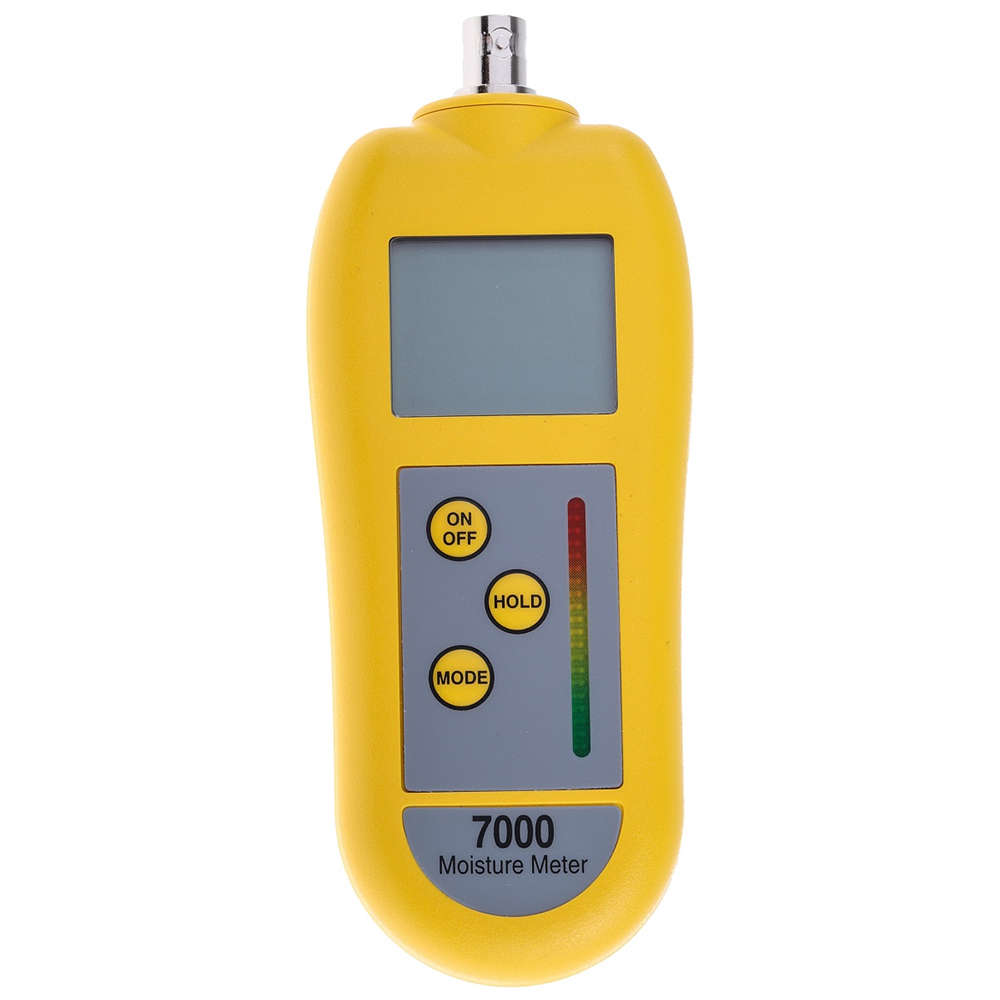Moisture Meter Acquiring Guide: What to Try to find in High-Quality Instruments
Moisture Meter Acquiring Guide: What to Try to find in High-Quality Instruments
Blog Article
The Ultimate Overview to Moisture Meters: A Comprehensive Summary and Exactly How They Can Save You Cash
In the world of structure upkeep, building, and different industries, the importance of properly gauging dampness levels can not be overstated. Dampness meters function as vital devices in finding and keeping track of moisture content in products, helping in preventing pricey problems and guaranteeing the quality of items. Understanding the subtleties of various kinds of moisture meters, their applications, and the possible cost-saving advantages they offer can be a game-changer for businesses and experts alike. Uncovering how these tools can not only simplify procedures however additionally add to economic savings is a trip worth starting.
Kinds Of Moisture Meters
One common type is the pin-type dampness meter, which measures the electrical resistance in between two pins put into a material. Pinless wetness meters, on the various other hand, use electro-magnetic sensing unit plates to scan a larger area without triggering damages to the material's surface.
Moreover, there are additionally specialty moisture meters developed for certain products like soil, grain, or hay. These meters offer precise wetness analyses customized to the one-of-a-kind buildings of the material being examined. Infrared dampness meters measure the thermal properties of a product to determine its wetness content non-invasively, making them valuable for applications where pin or pinless meters might not be suitable. Understanding the different sorts of moisture meters available can help markets choose the most appropriate tool for their details dampness measurement needs.

Advantages of Utilizing Moisture Meters

Moreover, utilizing moisture meters can bring about boosted energy efficiency. By determining locations with high dampness degrees, such as leakages or poor insulation, adjustments can be made to boost energy preservation and lower utility expenses. In agricultural settings, wetness meters play an essential duty in maximizing plant returns by enabling farmers to keep track of soil wetness degrees and make notified watering choices. Generally, the advantages of utilizing dampness meters extend throughout numerous sectors, giving cost-efficient remedies and promoting better high quality control practices.
How to Pick the Right Moisture Meter
Picking the proper moisture meter entails considering vital aspects such as material compatibility, dimension variety, and calibration accuracy. When picking a wetness meter, it's essential to guarantee that the meter appropriates for the particular product you will be screening. Different materials have differing electrical residential or commercial properties that can affect wetness readings, so selecting a meter made for your material is crucial for precise results. Furthermore, consider my review here the dimension variety of the dampness meter. Make sure that the meter can spot dampness levels within the variety needed for your applications. Calibration accuracy is one more crucial variable to bear in mind (Moisture Meter). Decide for a wetness meter with reputable calibration to ensure exact and consistent analyses. Some meters may call for periodic calibration modifications, so recognizing the calibration process is necessary. By carefully reviewing these elements, you can select a dampness meter that meets your requirements and gives accurate wetness dimensions for your projects.
Appropriate Methods for Moisture Meter Use
To make certain accurate wetness readings and take full advantage of the effectiveness of a wetness meter, employing appropriate techniques is essential. When utilizing a pin-type wetness meter, insert the pins or probes right into the material being checked until they make complete contact. By following these correct techniques, customers can rely on their dampness meter to offer reliable wetness levels, helping in preventing expensive damages or guaranteeing top quality in different applications.

Price Cost Savings Through Moisture Meter Applications
How can the strategic utilization of dampness meters lead to considerable cost savings throughout various sectors? Moisture meters play a critical role in expense financial savings by avoiding potential damages and making certain quality assurance in various sectors. In the agriculture market, dampness meters aid in establishing the optimal time for gathering plants, preventing over-drying or excess dampness that can influence the end product's quality. This accurate tracking aids farmers stay clear of unnecessary losses and maximize their yield.

Moreover, in the food processing industry, moisture meters are necessary for monitoring product quality and guaranteeing compliance with safety policies. By accurately measuring moisture content in food products, producers can avoid visit putridity, maintain freshness, and lower waste, causing substantial expense financial savings. Generally, the calculated application of wetness meters is an important investment that can lead to significant expense reductions and improved efficiency throughout numerous markets.
Conclusion
In verdict, moisture meters are useful devices for discovering and gauging wetness degrees in various materials. By using the click here to find out more appropriate moisture meter and complying with correct methods, customers can efficiently stop pricey damages triggered by excess dampness.
Dampness meters serve as indispensable devices in discovering and monitoring moisture content in materials, helping in protecting against costly damages and guaranteeing the top quality of products. Infrared moisture meters determine the thermal residential or commercial properties of a material to identify its dampness web content non-invasively, making them valuable for applications where pin or pinless meters may not be appropriate.Dampness meters supply invaluable advantages in properly evaluating and keeping track of dampness degrees in varied products and atmospheres. In agricultural settings, wetness meters play an essential function in enhancing crop yields by making it possible for farmers to monitor dirt dampness degrees and make notified watering decisions.In final thought, moisture meters are valuable devices for detecting and gauging wetness levels in different materials.
Report this page